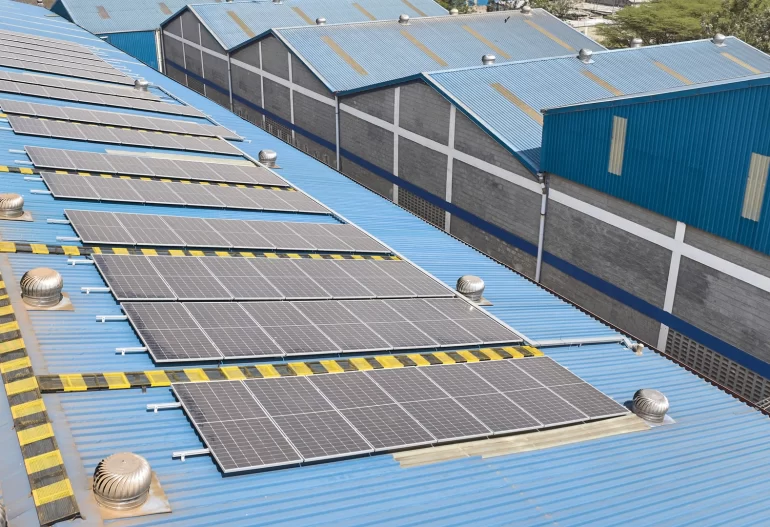Why Industrial Solar Systems Are the Future for Kenya
In Kenya, the rising cost of electricity and the push for sustainable energy solutions have made industrial solar systems an attractive option for businesses. Grid-tied solar systems, in particular, offer a reliable and cost-effective way to power operations while reducing environmental impact. This article explores the benefits of grid-tied solar systems and why industries in Kenya should consider them for their energy needs.
Energy Costs in Kenya
Over the past decade, Kenya has experienced a significant increase in electricity costs. The reliance on fossil fuels and the growing demand for electricity have driven up prices, making it challenging for industries to manage their energy expenses. According to data from the International Energy Agency (IEA), the cost of electricity in Kenya has risen by approximately 50% over the last ten years. This trend highlights the need for alternative energy solutions that can provide cost savings and energy independence.
How Grid-Tied Solar Systems Work
Grid-tied solar systems are designed to work in conjunction with the local utility grid, allowing businesses to use solar energy while still having access to grid power when needed. Here’s a simplified overview of how these systems function:
- Solar Panels: Solar panels installed on rooftops or open spaces capture sunlight and convert it into direct current (DC) electricity.
- Inverter: The DC electricity generated by the solar panels is sent to an inverter, which converts it into alternating current (AC) electricity, the type used by most industrial equipment and appliances.
- Electrical Panel: The AC electricity is then sent to the electrical panel, where it is distributed throughout the industrial facility to power operations.
- Grid Connection: If the solar system generates more electricity than needed, the excess power can be managed within the system but not fed back into the grid (as net metering is not currently operational in Kenya). Conversely, if the solar output is insufficient, the system will draw power from the grid to meet the facility’s energy demands.
- Monitoring System: A monitoring system tracks the performance of the solar panels and the overall energy production, ensuring optimal efficiency and providing data on energy savings.
Benefits of Grid-Tied Solar Systems
Grid-tied solar systems offer several advantages for industrial operations in Kenya. First, they provide a reliable source of electricity by harnessing the abundant sunlight available throughout the year. These systems are connected to the local utility grid, allowing industries to supplement their power needs with solar energy, reducing the amount of electricity they draw from the grid.
Second, grid-tied solar systems significantly reduce energy bills. By generating electricity on-site, industries can lower their reliance on grid-supplied power and take advantage of lower operational costs. Additionally, the environmental benefits of using renewable energy sources cannot be overstated. Solar power reduces carbon emissions and contributes to a cleaner, more sustainable future.
Return on Investment (ROI)
Investing in grid-tied solar systems can yield substantial returns for industries in Kenya. The initial installation costs are offset by the long-term savings on electricity bills. According to a study by the Kenya Power and Lighting Company (KPLC), industries that have adopted solar power have seen an average ROI of 15-20% within the first five years. This return is even higher when considering the potential increase in property value and the positive impact on the company’s environmental footprint. The average payback period for grid-tied solar systems in Kenya is typically around 5 to 7 years, making it a financially sound investment.
As Kenya continues to grapple with rising energy costs and the need for sustainable solutions, grid-tied solar systems present a viable and profitable option for industries. By investing in these systems, businesses can achieve energy independence, reduce operational costs, and contribute to a greener future. The time to act is now—make the switch to solar and unlock the full potential of your industrial operations.
Are you ready to take the next step towards energy efficiency and sustainability? Contact Mayu Solar today to explore how our grid-tied solar systems can power your operations and drive your business forward. Let’s build a brighter, cleaner future together.











